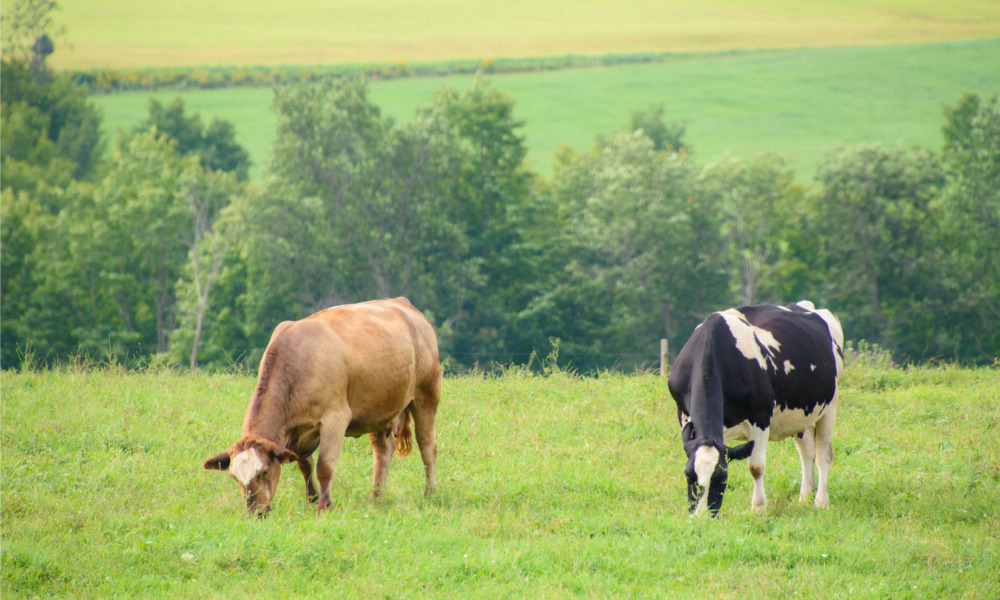
Plaintiff used to graze livestock on the property for many years before the testator's death

The BC Supreme Court has recently dismissed a plaintiff’s claim that he has a right to graze his livestock on a certain property after the owner’s death.
In Massot v Shewchuk, 2023 BCSC 673, William Welsh owned property in Cherryville, BC, before he passed away in 2021. While Welsh was still alive, Eric Massot grazed livestock on the property with the agreement of the deceased. Massot claimed that his arrangement to graze livestock on the property has existed for over 20 years.
When Welsh died, the property passed to Mark and Elizabeth Shewchuk under the terms of a will executed by the deceased in 2019. The will also appointed Mark Shewchuk as the executor and trustee of the estate. The will granted a cash bequest to Massot for $20,000 and bequests of $1,000 each to two charitable organizations. The residue of the estate was left, in equal shares, to Mark and Elizabeth.
The Cherryville property formed part of the estate's residue and passed to Mark and Elizabeth Shewchuk. Mark obtained a probate order from the court granting him the administration of the Welsh estate. Mark and Elizabeth became joint tenants of the Cherryville property.
Meanwhile, Massot continued to graze his livestock on the property after Welsh's death. The defendants requested Massot remove his livestock from the property, but Massot refused to leave. He claimed he had the right to graze his livestock on the property under an agreement between him and the deceased. He subsequently commenced a court action, asserting his alleged right to the property.
Massot asserted that his claim arose from an alleged verbal agreement with the deceased, which the defendants allegedly confirmed and adopted.
The BC Supreme Court was first asked to determine the will's validity. The court found that Mark Shewchuk, as the estate's executor, has searched for testamentary instruments executed by the deceased. His investigations have identified the will as the only testamentary instrument executed by the deceased.
Massot attempted to present vague evidence of a previous will. Still, the court found that he could not provide a copy of any previous will or any specific details of it. The court further noted that in the will, the deceased declared, "I revoke all previous wills and codicils made by me."
The court concluded that since Massot is not a family member of the deceased, he is not a person who would benefit from the deceased's estate on intestacy. He is also not a person who is entitled to seek a variation of the will. The court ruled that any claim made by Massot to challenge the will could not succeed.
Discover the different application of wills and estate laws in Canada both when a person dies with a will or intestate, and the importance of having a will.
Massort asserted that he had an agreement with the deceased for 20 years that allowed him to graze his livestock on the property. However, the court noted that the plaintiff had not registered any such alleged agreement against the title to the property. An agreement or licence to occupy the property that is not registered cannot bind subsequent property owners.
In any case, the court found that the estate executor revoked any licence or agreement to allow the plaintiff to occupy the property if such licence or agreement existed.
The court further found that the plaintiff's claim does not establish that he and the defendants had agreed upon the essential terms of an alleged lease agreement. The court explained that the lessor was not yet identified when Mark Shewchuk allegedly told Massot that he could stay at the property. At that time, the property belonged to the estate. Shewchuk was not an administrator or owner of the property. Consequently, the identity of the lessor at that time cannot be determined.
Further, the court noted that Shewchuk did not specifically identify the leased premises. Massot claimed the right to occupy only a portion of the property, but there was no description or identification of the boundaries of the leased premises. The court accordingly ruled that Massot had not established an agreement on the essential terms of a lease. Any claim made by Massot as a tenant under a lease or an agreement to lease must fail.
The court concluded that no potential causes of action under which a plaintiff may establish an interest in the property could succeed.